The Facts About Food
Respond to misinformation with the facts about carbs, ‘natural’ foods, and more.
Common Myths
Fact: Nutrition choices should be selected based on balance, variety, and moderation. A healthy adult can consume just about any food s/he desires, however, it is important to control portion sizes and frequency of intake. All food groups provide a unique set of macro and micronutrients that the body can use. It is most important to avoid “supersizing” portions and limiting the consumption of high calorie foods.
Fact: Fats play an important role in health. They help the body absorb various nutrients, transmit nerve signals, maintain cell membrane structure and support your vital organs. Fats are not created equally. Aim to reduce your consumption of trans-fat and saturated fat in favor of more unsaturated fats (monounsaturated and polyunsaturated). As with any macronutrient, fat-laden foods, when eaten in excess, may contribute to weight gain.
Fact: Coconut oil is high in saturated fat, higher even than butter. While the saturated fat in coconut oil is mostly medium-chain triglycerides, which may help to boost HDL cholesterol level, this high saturated fat product can also raise your LDL cholesterol and contribute to a higher calorie diet. While there is a lot of media hype extolling the virtues of coconut oil, it is still recommended that you consume it in moderation. There are many other alternative oils that are high in monounsaturated and polyunsaturated fatty acids (e.g. canola, peanut, soybean, sunflower and safflower oil).
Fact: The FDA does not regulate the term “natural” on a nutrition label; therefore, these claims can be made on any food product. Organic foods are almost nutritionally identical to conventional foods. The term “organic” describes the pesticide exposure to produce while it is growing in the field. While there has been some research to relate pesticide exposure to chronic disease, the evidence is inconclusive. In general, non-organic foods with a skin or peel that you remove (e.g. avocados, corn, bananas) are perfectly safe. You may choose to select organic versions of other foods.
Fact: While this was once thought to be true, we now know that the cholesterol from egg yolks does not significantly raise blood cholesterol levels. Therefore, you can eat whole eggs from time to time with no negative consequence.
Fact: Unless you have Celiac disease or gluten intolerance, there is no reason to avoid gluten. Gluten is a protein found in wheat, rye and barley products, all of which provide many nutrients and are high in fiber. If going on a gluten-free diet means you plan to eliminate all white breads and pastas, pastries and refined products, then it makes sense that this would be a healthier option. However, the protein, gluten, does not make a product less healthy.
Fact: There is no research to support the claim that a detox or cleanse can help to improve digestion and metabolism. The human body is very efficient at eliminating toxins on its own via the kidneys and liver. Instead of spending money on a “detox” product, focus on adding more fruits, vegetables and whole grains to your diet since they are high in fiber and will help improve digestion.
Fact: While sugar can contribute to the development of diabetes, so can many other foods that we consume regularly. Type 2 diabetes is a chronic condition that affects the way the body processes blood sugar (glucose). Foods that contain glucose can contribute to raising blood glucose, including grains, starchy vegetables, fruit, milk/yogurt, sweetened beverages and sweets (candy/pastries). To put it simply, “sugar” itself does not cause diabetes, but regular overconsumption of foods that are high in glucose can contribute to the development of diabetes.
Fact: Every person has different dietary preferences, and each food group (including meat) can contribute to a healthy diet. Animal protein is a complete protein source and contains Vitamin B12, which is only found in animal-based products. Lean animal protein can certainly be a part of a healthy meal plan; however, overconsumption of high-fat processed meats has been linked to the development of some chronic diseases. There are many plant-based protein alternatives that are good for you and can be combined in such a way as to contribute to a healthy diet as well.
Fact: Eating healthy can be achieved on a budget. It does require some thought, planning and basic cooking skills. Eat healthier on a budget by eating at home, using coupons, buying fruits and vegetables in season, and stocking up on inexpensive staples (e.g. whole grains, legumes, frozen vegetables).
Fact: The term “diet” makes most people think about giving up all of their favorite foods, starving themselves, or having just a few food options to choose from. The term “dietary pattern” is sometimes used to describe the quantities, proportions, and combinations of foods, drinks, and nutrients that a person consumes on a regular basis. It is easier to think about modifying your dietary pattern to achieve better health than incorporating a strict set of restrictions that will be difficult to maintain over the course of your life. Rather than recommending one diet over another, this toolkit provides tools and tips that you can use to adopt a healthier dietary pattern to ensure better long-term health and wellness.


